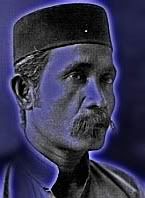Hui Hui And Other People
One day in our afternoon religious class, my friend L surprised me by saying that he'd been enjoying some Chinese New Year cake that his family had received from mainland China. L was a pretty ordinary chap, fair of skin and voluble in his Trengganuspeak. In our daily dalliance, he was very much like one of us, but it was when he started to talk of his yearly bite of his exotic cake that I realised that he was one of us and more. He was from the al-Yunani clan, a prominent Chinese Muslim family in Kuala Trengganu.
The al-Yunani family of Trengganu were not strictly from the Yunnan, but were the Hui-Hui people from the Guangdong province in China. Members of L's family who were early settlers in Kuala Trengganu adpted the family name al-Yunani (of the Yunnan) to signal to the local Malays and to the Chinese community that they were Muslim people, though they were not themselves from there.
The Hui Huis were generally Han Chinese, but in later classification of the Muslim community in China, the name was used to embrace other Muslim ethnic groups too, including the Turkic Muslims and even the former Nestorian Christians who converted to Islam many, many years ago. But the al-Yunani Hui Huis of Kuala Trengganu were Guangdong people who shared the same ethnicity as their non-Muslim cousins in Kampung China.
The journey of L's al-Yunani family to Trengganu started in 1903 when Haji Ali bin idris (later to be known as Pak Ali Yunan), his wife Hajjah Halimah, and his mother-in-law left Palembang where they'd been settled, for Singapore.There they found another person, whose name was to become famous in Kuala Trengganu, Abdullah bin Sulaiman, or Pak Lah Yunan, and another man from Guangdong named Musa (Pak Musa). From there they looked for another place to go to, and finally decided on Trengganu, a state once visited by Cheng Ho (Zheng He). And so, joined by Pak Lah's wife Khadijah (Pak Musa' niece who joined them from Guangdong) and another man, Daud, they settled in Kuala Trengganu.
Pak Musa became an itinerant medicine peddler, Pak Daud became a general trader in Jalan Kedai Payang, while Pak Lah went to prospect for gold in Hulu Trengganu. While he was away, his wife and daughter opened a laundry shop in Kuala Trengganu, called Kedai Abdullah al-Yunani. When Pak Lah came back from the sticks, having failed to find much gold in the Hulu, he began to spend his days in the laundry shop, adding other items to its inventory, religious books on the shelves, and rice bags on the shop floor. Soon, in an act of trimming down, he stopped taking in dirty linen, and stopped the trade in rice entirely. He concentrated on the book-trade, and for a long time Abdullah al-Yunani became the most famous bookshop in Jalan Kedai Payang, in Kuala Trengganu.
In the records of the al-Yunani family of Trengganu, they have 7 pioneers who came down to Trengganu from China, the first five under the reign of Sultan Zainal Abidin III (1881 -1918)— Musa Li, Ali Zhang bin Idris, Abdullah Dong bin Sulaiman, Daud Dong and Hassan Liu bin Salleh. Then two more under the reign of Sultan Sulaiman Badrul Alam Shah (1921- 1942) — Muhammad Yusuf Xiao bin salleh, and Haji Ibrahim Fu bin Muhammad.
Now, although almost completely absorbed into the Malay community of Trengganu, the al-Yunanis still look back to their roots in China if only to remind themselves how far they've travelled to be there.
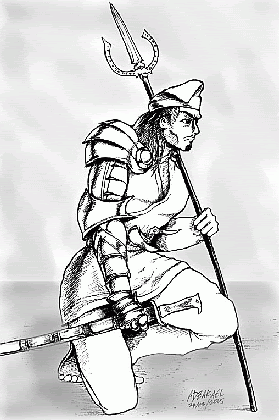
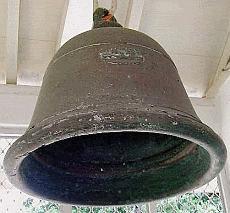
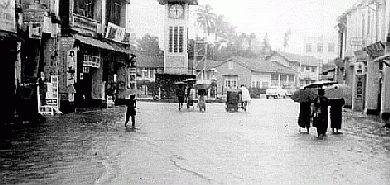
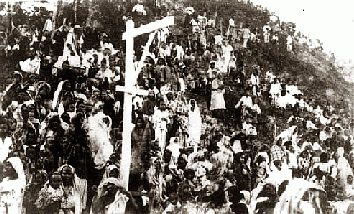
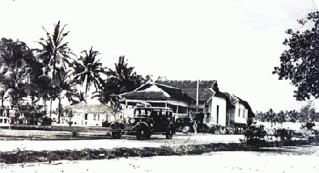
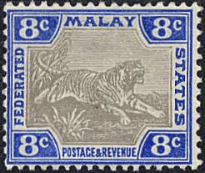 when I was at primary school in Kuala Trengganu, I was given a book prize for something that I've forgotten now. But the book was "The Tigers of Trengganu", by Col A.E.Locke (and if you're reading this Mr Ravindran Nair, thank you, thank you). Locke was the man they sent out to do the shoot, after many complaints from the orang darat, of tigers roaming wild. The tigers were interfering with their livelihood, so this chap Locke shot down quite a few — the tigers I mean, not the orang darats we all loved and knew.
when I was at primary school in Kuala Trengganu, I was given a book prize for something that I've forgotten now. But the book was "The Tigers of Trengganu", by Col A.E.Locke (and if you're reading this Mr Ravindran Nair, thank you, thank you). Locke was the man they sent out to do the shoot, after many complaints from the orang darat, of tigers roaming wild. The tigers were interfering with their livelihood, so this chap Locke shot down quite a few — the tigers I mean, not the orang darats we all loved and knew.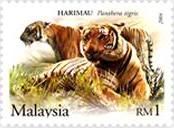 Kuala Trengganu when I was there, though rumours were rife of striped stalkers. The Malays have a healthy respect for tigers, or Tok Belang as they're called, even now. The title Tok is reserved for a revered elder, and generally for someone of deep learning and remarkable skill, such as our renowned anti-colonial folk heroes, Tok Bahaman and Tok Peramu. In the early seventies a myesterious old man surfaced in Pahang who identified himself only as Tok Peramu, and said no more. There was an old exponent of silat then in Kuala Trengganu, by the name of Che Wan Muhammad, who learnt his art in the Pahang of old. When the elderly Che Wan saw the Tok Peramu looking sanguine in those newspaper pictures, he sat up and said: "This is Tok Bahaman, you know!" But the Tok Bahaman is another story.
Kuala Trengganu when I was there, though rumours were rife of striped stalkers. The Malays have a healthy respect for tigers, or Tok Belang as they're called, even now. The title Tok is reserved for a revered elder, and generally for someone of deep learning and remarkable skill, such as our renowned anti-colonial folk heroes, Tok Bahaman and Tok Peramu. In the early seventies a myesterious old man surfaced in Pahang who identified himself only as Tok Peramu, and said no more. There was an old exponent of silat then in Kuala Trengganu, by the name of Che Wan Muhammad, who learnt his art in the Pahang of old. When the elderly Che Wan saw the Tok Peramu looking sanguine in those newspaper pictures, he sat up and said: "This is Tok Bahaman, you know!" But the Tok Bahaman is another story. in the jungles of Trengganu perhaps not too long ago, maybe until the early second half of the last century. In or about 1809, the Sultan of Trengganu Sultan Ahmad Shah I sent a Trengganu tiger to Brunei as a royal present to their then ruler Sultan Muhammad Kanzul Alam (1807-1826). The gift provided more than amusement to the people of Brunei, as not long after that, the tiger escaped, but was recaptured by a man named Pengiran Muhammad Daud, who, by all accounts, was a fierce warrior. The Pengiran, who was given the title Pengiran Pemancha after another act of heroism involving some Spaniards who visited Brunei, single-handedly brought home the Trengganu tiger.
in the jungles of Trengganu perhaps not too long ago, maybe until the early second half of the last century. In or about 1809, the Sultan of Trengganu Sultan Ahmad Shah I sent a Trengganu tiger to Brunei as a royal present to their then ruler Sultan Muhammad Kanzul Alam (1807-1826). The gift provided more than amusement to the people of Brunei, as not long after that, the tiger escaped, but was recaptured by a man named Pengiran Muhammad Daud, who, by all accounts, was a fierce warrior. The Pengiran, who was given the title Pengiran Pemancha after another act of heroism involving some Spaniards who visited Brunei, single-handedly brought home the Trengganu tiger.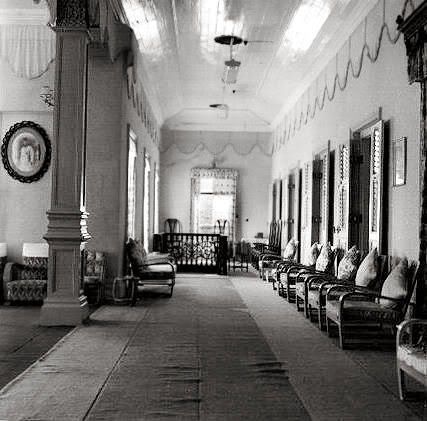
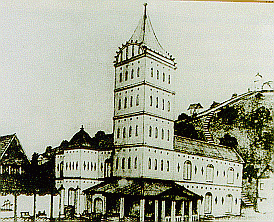 Yet at festival times, when thatch-roofed platforms were placed over barrels on what used to be known as Padang Malaya, folk came milling in from the outer reaches of Kuala Trengganu for the rodat show, or the bangsawan opera. The Istana Maziah took another shape, flooded as it was in lights and decked with twinkling bulbs of many colours. The Istana that stared at us mutely in our workaday lives had suddenly come aglow. And so it'd done in Trengganu history, it had been looking and absorbing all — the ceremonies of mandi safat for pre-nuptial royals, the sweet voice of the opera starlet Ruhani B, and voices of politicians that bellowed their cause on platforms in Padang Malaya, including the late lamented Datuk Onn Jaafar who, towards the end of his life, became the voice of Kuala Trengganu South in the People's Chamber (Dewan Rakyat) in Kuala Lumpur.
Yet at festival times, when thatch-roofed platforms were placed over barrels on what used to be known as Padang Malaya, folk came milling in from the outer reaches of Kuala Trengganu for the rodat show, or the bangsawan opera. The Istana Maziah took another shape, flooded as it was in lights and decked with twinkling bulbs of many colours. The Istana that stared at us mutely in our workaday lives had suddenly come aglow. And so it'd done in Trengganu history, it had been looking and absorbing all — the ceremonies of mandi safat for pre-nuptial royals, the sweet voice of the opera starlet Ruhani B, and voices of politicians that bellowed their cause on platforms in Padang Malaya, including the late lamented Datuk Onn Jaafar who, towards the end of his life, became the voice of Kuala Trengganu South in the People's Chamber (Dewan Rakyat) in Kuala Lumpur.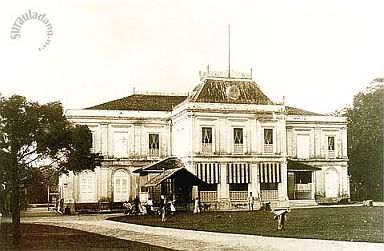
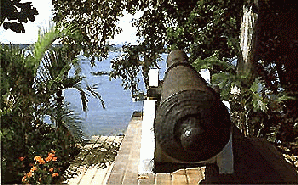 Up these steps to the count of a hundred and a half, maybe more, you're confronted with the edge of mystery, of bushes, and tall trees, and old graves that had lain there silently since the beginning of memory. To our left, just before the graves, I remember, half buried in the ancient earth, a heavy piece of time-worn cast iron known as bedil beranak, a mother cannon that gave birth to another. Beside it, resting in peace, was another, much smaller, presumably the by-product of this parturition in heavy metal. Many a time I must've stood there wondering how the mother — known as Sri Buih — could have raised such a baby-boomer.
Up these steps to the count of a hundred and a half, maybe more, you're confronted with the edge of mystery, of bushes, and tall trees, and old graves that had lain there silently since the beginning of memory. To our left, just before the graves, I remember, half buried in the ancient earth, a heavy piece of time-worn cast iron known as bedil beranak, a mother cannon that gave birth to another. Beside it, resting in peace, was another, much smaller, presumably the by-product of this parturition in heavy metal. Many a time I must've stood there wondering how the mother — known as Sri Buih — could have raised such a baby-boomer.



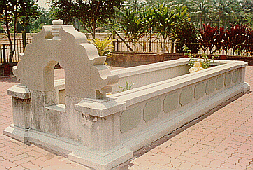 much too late in the day for Hang Tuah to be gallivanting around, as the Hikayat Hang Tuah claims. The Sultan Mansur, whom Hang Tuah served, came to the throne of Melaka in 1458 and died in 1477. There could well have been another Tun Teja, as even acccounts of her status varied. One said that she was betrothed to the Yang di Pertuan of Pahang, others, to Megat Panji Alam of Trengganu.
much too late in the day for Hang Tuah to be gallivanting around, as the Hikayat Hang Tuah claims. The Sultan Mansur, whom Hang Tuah served, came to the throne of Melaka in 1458 and died in 1477. There could well have been another Tun Teja, as even acccounts of her status varied. One said that she was betrothed to the Yang di Pertuan of Pahang, others, to Megat Panji Alam of Trengganu.